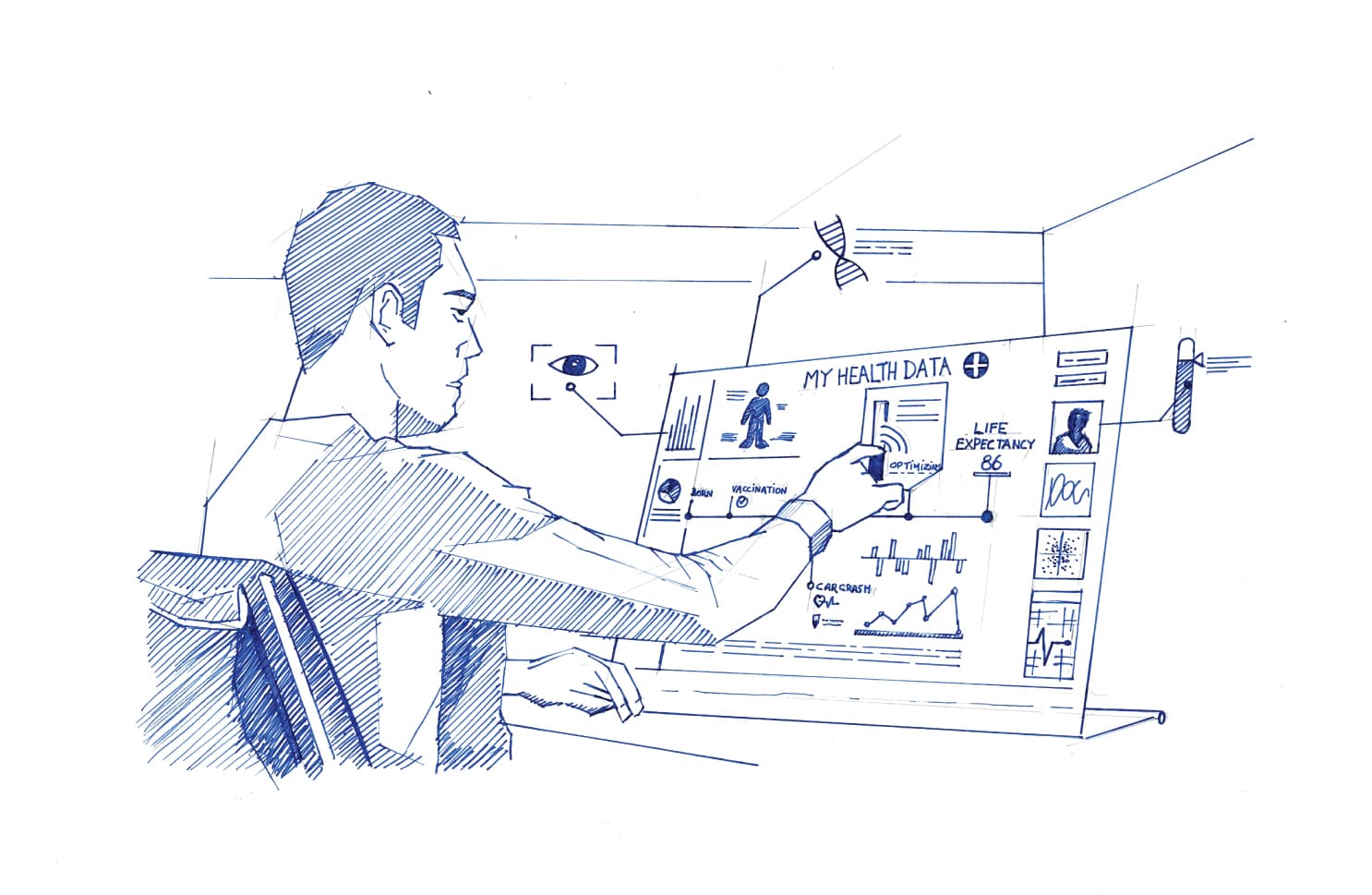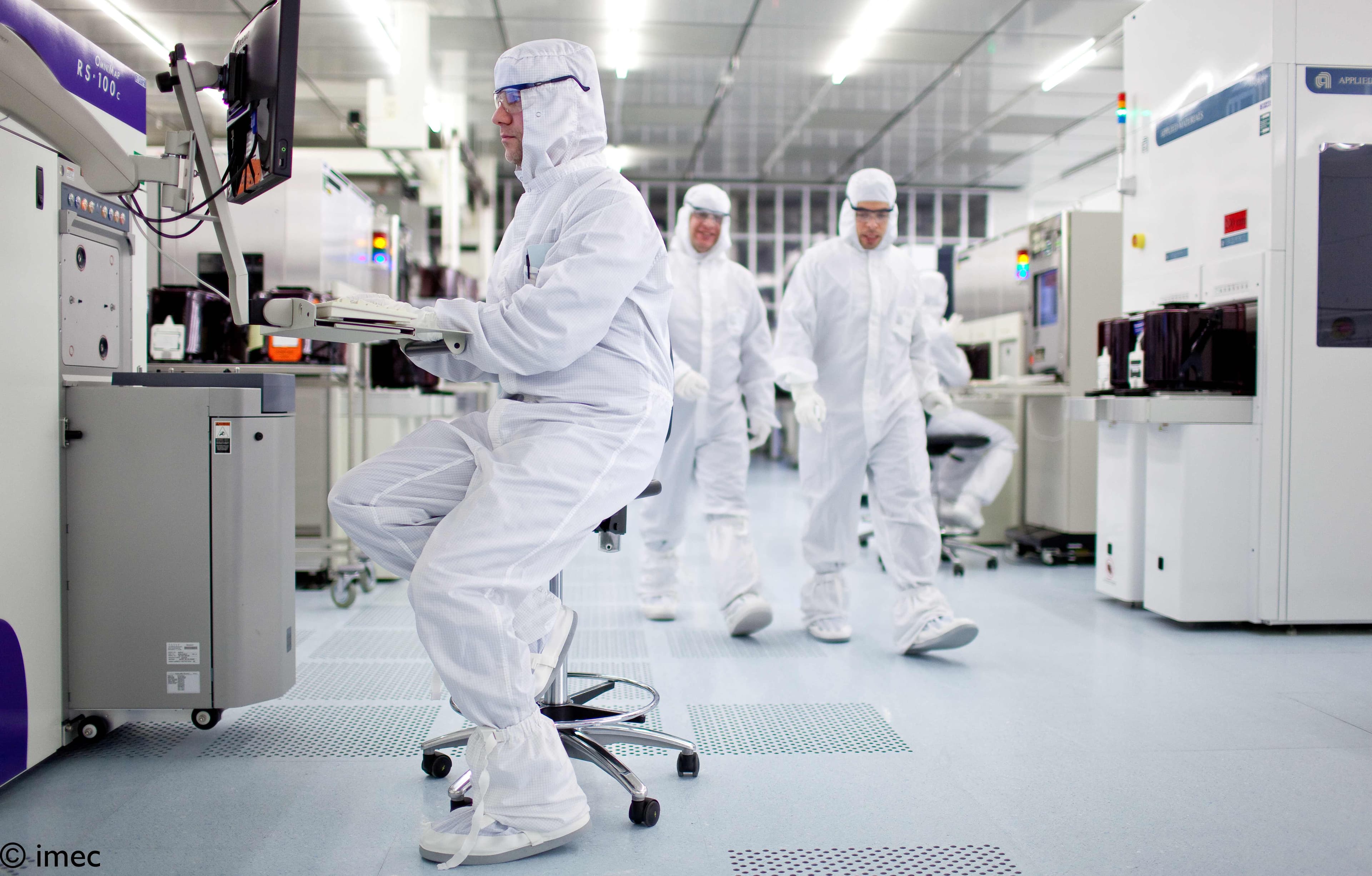
In 2035 you’ll ‘manage’ your health, just as you do your bank account today
We must stay healthier for longer
Staying healthy is good for us and even better for the country. Because – as Warren Buffet puts it – the cost of healthcare is like a tapeworm for the economy.
But how can we live healthier for longer?
By keeping a better eye on everything. Just as a diabetes patient today is constantly checking his or her blood sugar level and receives an alert when action needs to be taken. Which means we’ll be wearing sensors – incorporated into bracelets, clothes, contact lenses, plasters, or even implanted in our body – and our smartphone will be used to monitor our health (like the FibriCheck app for heart rhythm disorders). Even blood samples will be easier and faster to analyze – by us or by the doctor – thanks to tiny lab-on-chips.
We'll manage our own medical records, too.
They’ll contain all of the data that we collect with sensors, plus details recorded by the doctor during a visit – as well as our genetic map. All of which means that these medical records will be worth their weight in gold! Figuratively, for ourselves, but also literally, for pharmaceutical companies that can learn a great deal about certain diseases from the data of thousands of people.

We will still need doctors, of course
Because who else will want to be constantly browsing through our medical data? Doctors will become information specialists and health coaches to help us make the right choices for a healthier life.
The doctor’s most important assistant and tool will be the computer. Thanks to artificial intelligence and machine learning, your data will take on greater significance. And it will be possible to calculate specific scenarios such as, ‘If you keep smoking, you might live to be 70. But if you stop now, you’re likely to make 90.’
These scenarios may also be of interest for calculating a ‘personalized’ health insurance premium. Someone who opts to smoke, will have to pay more. Someone trying to tackle his obesity, will pay less. And the right rules and laws will ensure that we’re not ‘penalized’ for things we have no influence over (such as genetic diseases). Of course, everyone will be free to make their own unhealthy choices, but if they do, they’ll have to pay more for their health cover.
All of which means that by 2035, we will be more in control of our own health. Transparency, security and data protection, combined with legislation and regulations, will be important for keeping pace with technological progress, so that we can continue to live healthier for longer, without (too many) cares.











